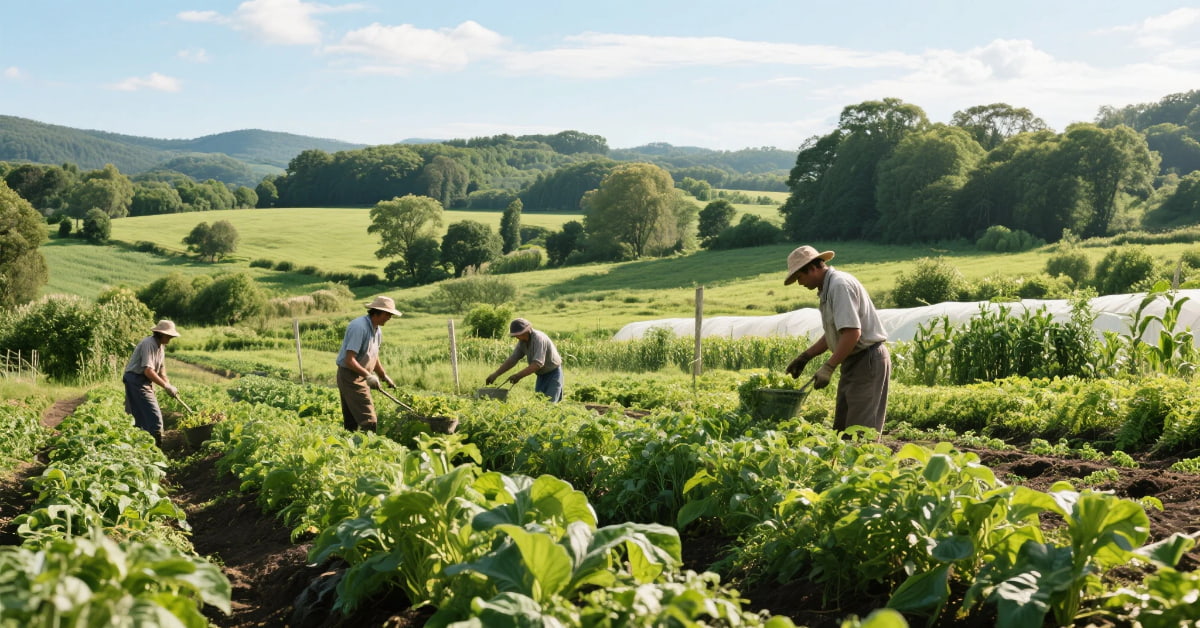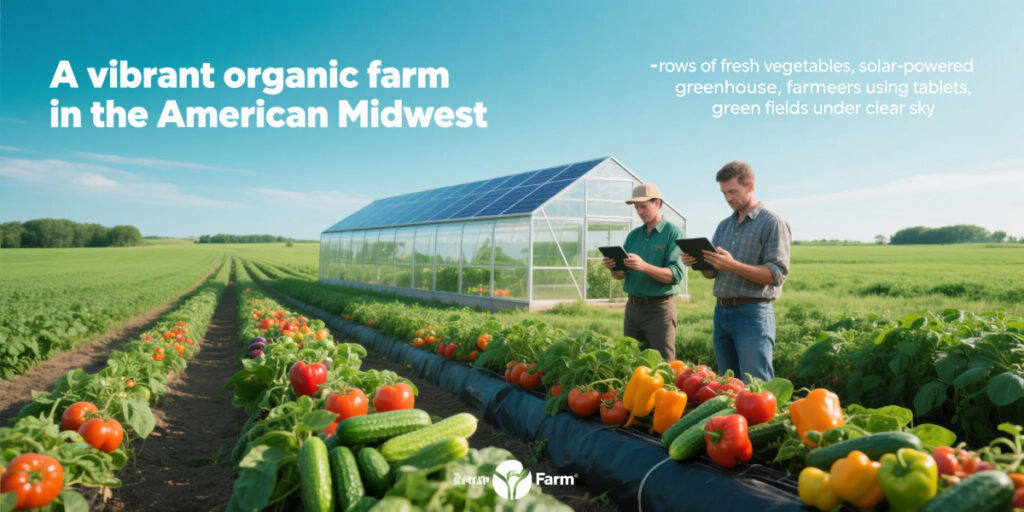Organic Agriculture: For a Healthy Future

Organic agriculture is gaining global recognition as a sustainable farming method that ensures food safety, soil health, and environmental protection. With growing concerns about pesticide use and climate change, this eco-friendly approach helps build a healthier future. From the USA to Europe, people are increasingly shifting to organic practices for long-term well-being.
Key Benefits of Organic Farming for a Healthier Future
- Improves Soil Fertility: Natural agriculture focuses on compost, crop rotation, and green manure, enriching the soil over time.
- Supports Ecosystem Balance: Unlike chemical farming, it preserves natural insect predators, pollinators, and microorganisms in harmony.
- Reduces Chemical Exposure: Organic produce is free from synthetic fertilizers and harmful pesticides that affect human and animal health.
- Enhances Nutrition Quality: Studies show that organic fruits and vegetables contain higher antioxidant and vitamin levels than conventional ones.
- Saves Water and Energy: Organic methods use 20% less energy and improve water retention in soil, beneficial during droughts or dry seasons.
How to Implement Organic Agriculture Successfully
To adopt organic farming, start with organic-certified seeds and avoid genetically modified organisms. Use compost, vermiculture, and crop rotation techniques to maintain soil health. Certification through USDA Organic, EU Organic, or Canadian Organic standards helps build trust in the market. In the USA, grants and tools like ATTRA Sustainable Agriculture Tools support farmers in transitioning to organic systems.
Challenges and Smart Solutions in Organic Practices
While yields may be lower initially, organic farming becomes more profitable over time. Tools like soil testing kits, natural pest repellent sprays, and drip irrigation systems help improve results. Community-supported agriculture (CSA) and farmer markets are also effective channels for selling organic produce directly to eco-conscious consumers.
Why Developed Nations Are Embracing Organic Agriculture
Consumers in countries like the USA, Canada, Germany, and the UK are increasingly aware of their food sources. “Pesticide-free farming,” “non-GMO organic,” and “chemical-free vegetables” are popular search terms in these regions. Government support, retail demand, and environmental awareness fuel the movement toward organic food systems.
🟢 Conclusion: Organic Agriculture Ensures Sustainability and Health
Organic agriculture is more than a trend — it is a necessity for a healthy future. It nurtures nature, protects future generations, and supports long-term sustainability. Whether you’re a small farmer or a conscious consumer, embracing organic agriculture is a meaningful step toward a better planet.
Related
Discover more from Ecofriendly
Subscribe to get the latest posts sent to your email.












Gamers trust Lucky Jet before it’s too late.
Thank you very much
Use dark mode for comfort in Aviator game download UI.
Thank you very much
LeonBet ist die perfekte Wahl f�r Sportwetten-Fans in Deutschland.
Thank you very much